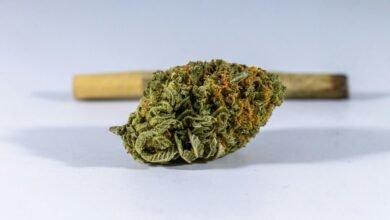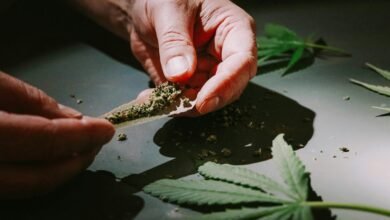Does Cbd Cause Munchies

The relationship between CBD and appetite is nuanced. Unlike THC, which is known for inducing the "munchies," CBD's effects can vary significantly among individuals. Research suggests that higher doses of CBD may suppress appetite, while lower doses might have minimal impact. Understanding these dynamics is crucial, as personal biology and context play vital roles in how CBD influences feeding behavior. This complexity prompts further exploration into the mechanisms at play.
Understanding CBD and Its Effects on the Body
Cannabidiol (CBD), a compound derived from the cannabis plant, has garnered significant attention for its potential therapeutic benefits.
Research highlights various CBD benefits, including anxiety reduction and pain relief.
However, adherence to dosage guidelines is crucial for optimizing effects while minimizing side effects.
Understanding these parameters is essential for individuals seeking to harness CBD's advantages responsibly and effectively in their wellness routines.
THC vs. CBD: The Role of Cannabinoids in Appetite
How do cannabinoids influence appetite regulation?
THC primarily engages cannabinoid interaction in the brain, leading to appetite stimulation and the well-known "munchies."
In contrast, CBD's interaction with cannabinoid receptors does not typically induce hunger.
This distinction highlights the diverse roles these cannabinoids play in appetite modulation, offering insights into how they can be utilized for various wellness goals and dietary needs.
Research on CBD and Appetite Regulation
Research into the effects of CBD on appetite regulation has yielded mixed findings, suggesting a nuanced role in how this cannabinoid influences feeding behavior.
Some studies indicate that CBD may contribute to appetite suppression, particularly at higher dosages.
Conversely, lower dosages appear to have a less significant impact on appetite, underscoring the importance of dosage effects in understanding CBD's role in appetite modulation.
Personal Experiences: CBD and Cravings in Users
What role does personal experience play in understanding the relationship between CBD and cravings?
User experiences reveal varied CBD effects on appetite, with some reporting increased cravings and others noting a decrease.
These subjective accounts suggest that individual biology, dosage, and context significantly influence outcomes.
Analyzing these experiences can provide valuable insights into the complex dynamics between CBD consumption and appetite regulation.
Conclusion
In the intricate dance of cannabinoids, CBD emerges as a nuanced partner, distinct from its more boisterous counterpart, THC. While the latter is often linked to an increase in cravings, CBD presents a more subtle narrative, with effects that can sway towards appetite modulation. This complexity invites a deeper exploration into individual experiences and biological responses, suggesting that CBD may not lead to the typical "munchies," but rather offers a more refined approach to appetite regulation.






